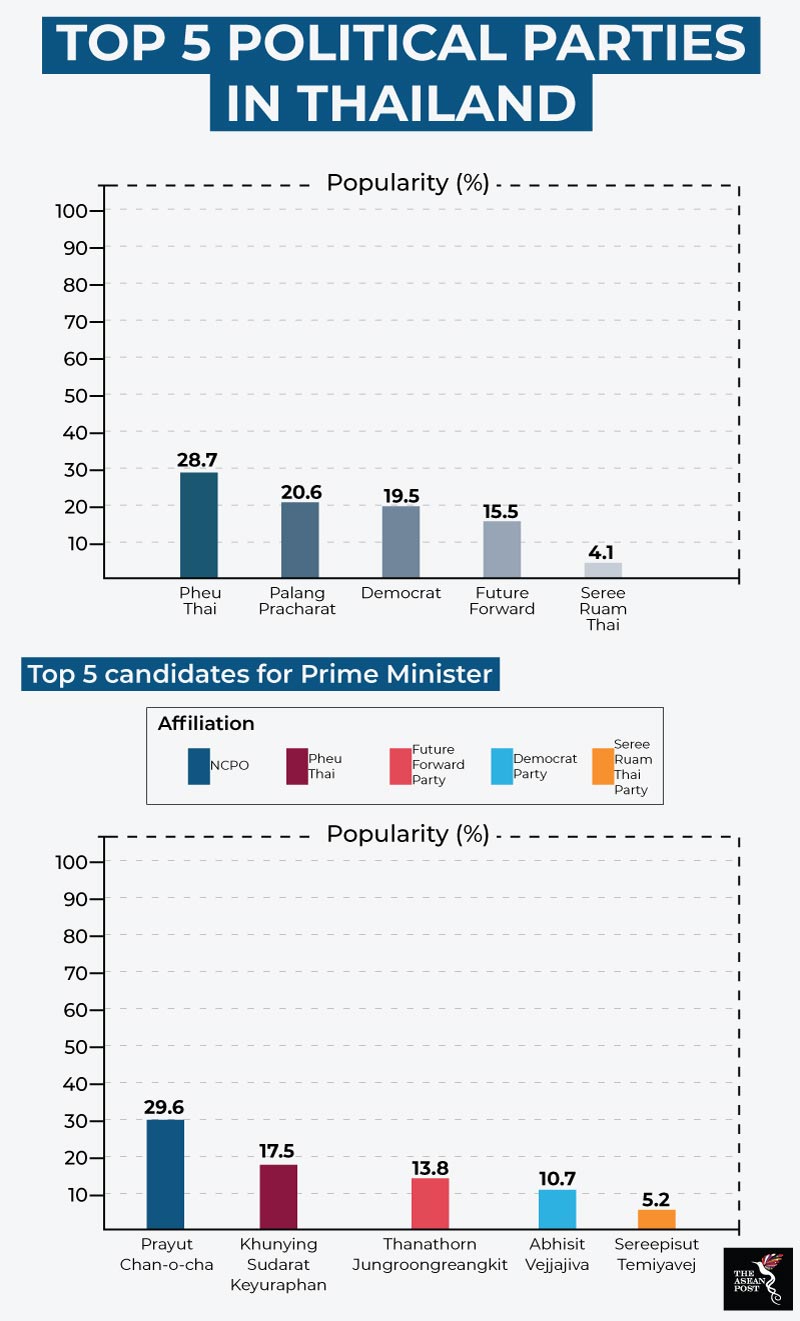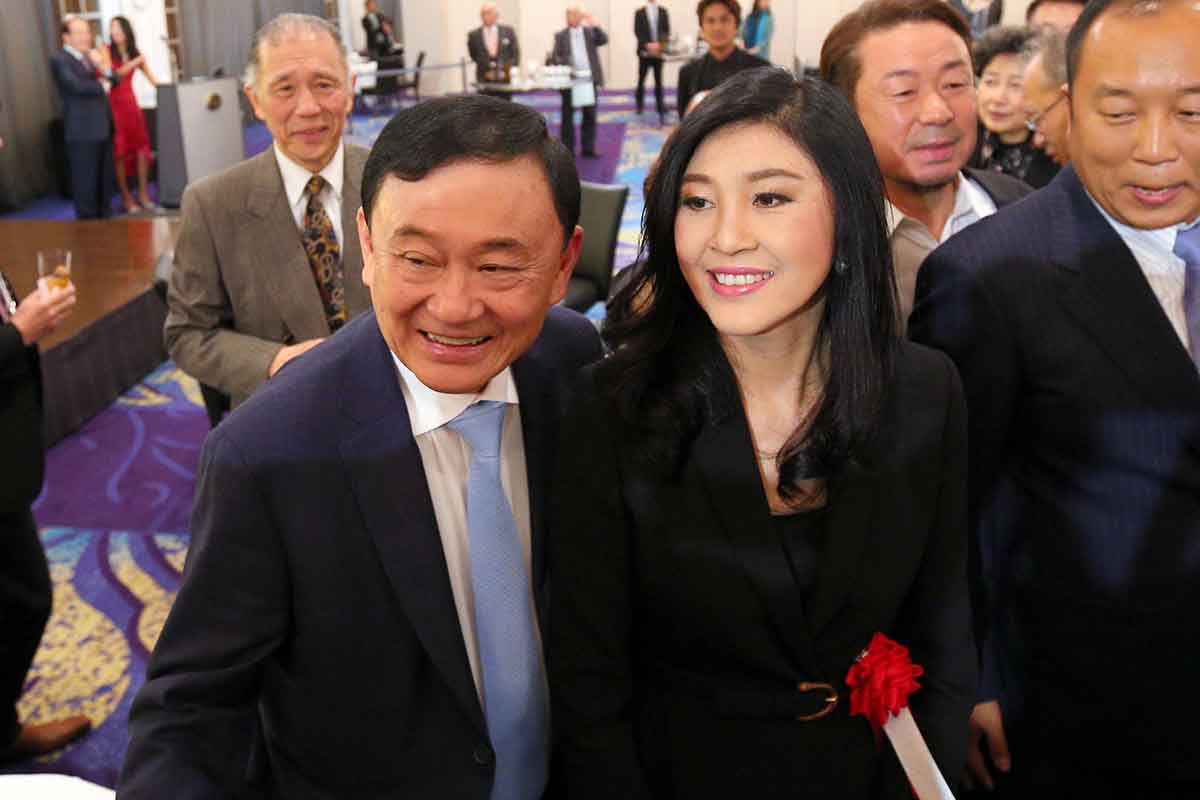Recent news reports have revealed that the relatives and allies of ousted Thai prime ministers Thaksin Shinawatra and his sister, Yingluck Shinawatra, have formed a new political party – the Thai Raksa Chart Party. The move, made in the face of a promised general election next year, is being seen as a strategy to win more votes.
Under the military government's new constitution, which the military has said was aimed at weakening major political parties, constituency seats in provinces where the Shinawatras have previously held dominance have been effectively cut.
"It's a political strategy for Puea Thai under the new electoral system to win more seats," political scientist Yuttaporn Issarachai said, adding that the party would also serve as a back-up should Pheu Thai be dissolved. A matter that became a likelihood following the junta’s order for the Election Commission to investigate whether Thaksin was still in control of the party.
Saviours of the poor
Pheu Thai - and by extension the Shinawatras – receives most of its support from the North and Northeast Thailand regions, and the rural and urban poor. The reason for this lies in the fact that it was the Shinawatras who came up with policies such as universal healthcare, debt relief, loans for start-up businesses and big rice subsidies for farmers.
In a country where inequality is rampant and the poor feel ignored and side-lined by Bangkok’s dominant elite, the Shinawatras came out looking like saviours of the poor with their populist policies. There is little coincidence that Northeast Thailand - where the Pheu Thai enjoys most of its support – is also the most populous and poorest region in the country, contributing to Pheu Thai’s victorious streak from 2001 all the way to the most recent military coup in 2014.
Today, while the gap between rich and poor has been steadily narrowing in Thailand with low-income earners making more gains than the wealthy in recent years, the World Bank’s executive director for Southeast Asia Ulrich Zachau says inequality is still high.
“In Thailand, inequality has been declining. It is still high, but the poor have been gaining more than the rich, and this is the most striking feature of economic and social development in Thailand and in the sub-region,” he said during an interview with local media in Thailand recently.
Unfortunately for Pheu Thai’s competitors, the declining inequality has not translated into a decline in support for the party. Statistics from the National Institute of Development Administration’s (NIDA) latest poll in September indicate that Pheu Thai remains the number one choice for Thais. 28.8 percent chose Pheu Thai, 29.6 percent chose Palang Pracharat, 19.6 percent chose the Democrat Party, and 15.5 percent chose the new Future Forward party.

Source: National Institute of Development Administration
Courting the young
The explosive popularity of a recent anti-junta rap song has shined a light on the possibility that there are many young Thais who aren’t all that happy with the military junta or Prime Minister Prayut Chan-o-cha.
It wasn’t long before political parties rode on the back of the song’s popularity with the new Future Forward Party’s leader Thanathorn Juangroongruangkit commenting on the song, saying that it “unveiled” the situation in which “dictators” use soft culture like songs to make people unaware that they are being oppressed.
During its inception, the Future Forward Party had already highlighted the youth and disenfranchised as being among its target audience.
Meanwhile, the Thai Raksa Chart Party has also revealed to local media that it will be driven by young politicians in a bid to appeal to younger voters. However, the source said some key Pheu Thai figures disagree with Thai Raksa Chart's formation as they believe these individuals lack political experience.
Members of the new party include Thaksin and Yingluck's nephew and niece, close aides, and the younger generation of the clan's political allies. It will be headed by Preechapol Pongpanich, an ex-member of Parliament with the Pheu Thai Party.
Ruephop Shinawatra, son of Payap Shinawatra, who is the brother of ousted prime minister Thaksin Shinawatra, is widely speculated to become a party executive.
Mitti Tiyapairat, son of former parliament president Yongyuth Tiyapairat, is poised to take the role of party secretary-general. He has gained recognition for his management of football club Chiang Rai United FC as the club’s president.
The Thai Raksa Chart Party is not the only offshoot of the Pheu Thai party which also includes Pheu Tham and Pheu Chart. With different offshoots targeting different voters and the Pheu Thai and Shinawatra family being able to rely on strong grassroot support, there is a strong likelihood that Pheu Thai will be able to solidify its position in the upcoming general election and possibly return to office.
Related articles:
